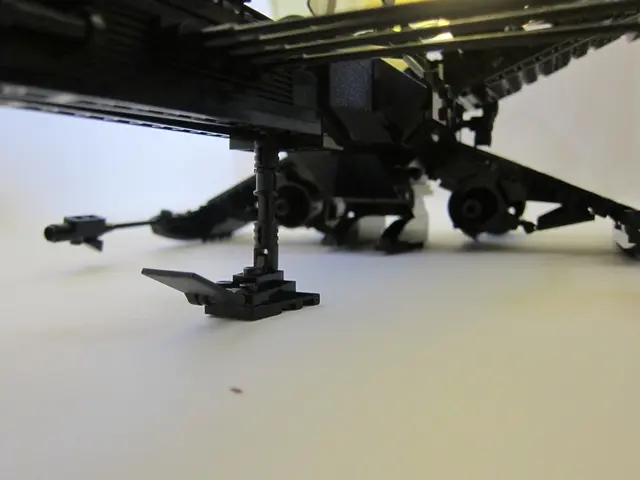Microsoft Aims for AI Self-Sufficiency with Own Chips and Models
Microsoft is expanding its AI capabilities, aiming for self-sufficiency. The tech giant is developing its own AI chips and models, while also investing heavily in OpenAI. Meanwhile, other tech giants like Alphabet, Amazon, and Meta are also working on their own AI chips.
Microsoft's AI ambitions are clear. The company is planning to build its own AI chip cluster to reduce reliance on external providers like AMD and NVIDIA. This move aligns with CEO Satya Nadella's shift away from Bill Gates' software factory vision.
Microsoft is also developing its own off-frontier AI models, currently around 3 to 6 months behind OpenAI. This is significant, given that Microsoft is OpenAI's largest backer with a $13 billion investment. The company has integrated OpenAI's technology across its products and services, but Salesforce CEO Marc Benioff predicts Microsoft won't use OpenAI's tech in the future.
OpenAI, with Microsoft's support, is set to start producing its own AI chip with Broadcom in 2026. Other companies like Alphabet, Amazon, and Meta are also developing their own AI chips. Alibaba has already been using its self-developed Zhenwu chips since early 2025.
Microsoft's plans to develop its own AI chips and models signal a growing independence in the AI landscape. While it retains the right of first refusal for OpenAI's cloud services, Microsoft is positioning itself for self-sufficiency in AI. Meanwhile, other tech giants are also investing in their own AI hardware, shaping the future of AI data centers.








